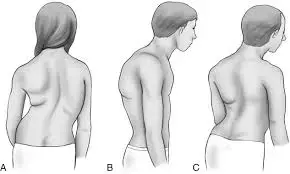- Home
- Medical news & Guidelines
- Anesthesiology
- Cardiology and CTVS
- Critical Care
- Dentistry
- Dermatology
- Diabetes and Endocrinology
- ENT
- Gastroenterology
- Medicine
- Nephrology
- Neurology
- Obstretics-Gynaecology
- Oncology
- Ophthalmology
- Orthopaedics
- Pediatrics-Neonatology
- Psychiatry
- Pulmonology
- Radiology
- Surgery
- Urology
- Laboratory Medicine
- Diet
- Nursing
- Paramedical
- Physiotherapy
- Health news
- Fact Check
- Bone Health Fact Check
- Brain Health Fact Check
- Cancer Related Fact Check
- Child Care Fact Check
- Dental and oral health fact check
- Diabetes and metabolic health fact check
- Diet and Nutrition Fact Check
- Eye and ENT Care Fact Check
- Fitness fact check
- Gut health fact check
- Heart health fact check
- Kidney health fact check
- Medical education fact check
- Men's health fact check
- Respiratory fact check
- Skin and hair care fact check
- Vaccine and Immunization fact check
- Women's health fact check
- AYUSH
- State News
- Andaman and Nicobar Islands
- Andhra Pradesh
- Arunachal Pradesh
- Assam
- Bihar
- Chandigarh
- Chattisgarh
- Dadra and Nagar Haveli
- Daman and Diu
- Delhi
- Goa
- Gujarat
- Haryana
- Himachal Pradesh
- Jammu & Kashmir
- Jharkhand
- Karnataka
- Kerala
- Ladakh
- Lakshadweep
- Madhya Pradesh
- Maharashtra
- Manipur
- Meghalaya
- Mizoram
- Nagaland
- Odisha
- Puducherry
- Punjab
- Rajasthan
- Sikkim
- Tamil Nadu
- Telangana
- Tripura
- Uttar Pradesh
- Uttrakhand
- West Bengal
- Medical Education
- Industry
Rare case of Pectus excavatum, kyphoscoliosis associated with thoracolumbar spinal stenosis reported

A rare case of Pectus excavatum, kyphoscoliosis associated with thoracolumbar spinal stenosis has been reported by researchers and the same has been published in the journal BMC surgery.
Pectus excavatum is a condition in which a person's breastbone is sunken into his or her chest. Severe cases of pectus excavatum can eventually interfere with the function of the heart and lungs. Pectus excavatum is a condition in which the person's breastbone is sunken into the chest. Thoracolumbar spinal stenosis and kyphoscoliosis was seen in patients with pectus excavatum. It can be caused by ossification of the ligamentum flavum, which is rare in patients with pectus excavatum.
Pectus excavatum can range from mild to severe. Those with a mild condition often do not have symptoms. Those with moderate-to-severe conditions may have symptoms such as shortness of breath, fatigue, exercise intolerance/limitations and chest pain. With a severe case of pectus excavatum, there can be compression of the heart. Pectus excavatum may also be associated with scoliosis in some children. Children with pectus excavatum may experience some negative effects on their self-esteem due to the appearance of the chest.
The researchers reported a 26-year-old woman presented bilateral lower extremities weakness and numbness for two months, progressive worsening. She has been diagnosed as thoracolumbar spinal stenosis with ossification of the ligamentum flavum, and thoracolumbar kyphoscoliosis associated with pectus excavatum. The posterior instrumentation, decompression with laminectomy, and de-kyposis procedure with multilevel ponte osteotomy were performed. Her postoperative course was uneventful and followed up regularly. Good neurologic symptoms improvement and spinal alignment were achieved.
Thus, the researchers concluded that pectus excavatum, kyphoscoliosis associated with thoracolumbar spinal stenosis is rare, and thus her treatment options are very challenging. Extensive laminectomy decompression and de-kyphosis procedures can achieve good improvement of neurologic impingement and spinal alignment.
Reference:
Zhao, S., Xue, X., Li, K. et al. Pectus excavatum, kyphoscoliosis associated with thoracolumbar spinal stenosis: a rare case report and literature review. BMC Surg 22, 266 (2022). https://doi.org/10.1186/s12893-022-01716-7
Dr. Shravani Dali has completed her BDS from Pravara institute of medical sciences, loni. Following which she extensively worked in the healthcare sector for 2+ years. She has been actively involved in writing blogs in field of health and wellness. Currently she is pursuing her Masters of public health-health administration from Tata institute of social sciences. She can be contacted at editorial@medicaldialogues.in.
Dr Kamal Kant Kohli-MBBS, DTCD- a chest specialist with more than 30 years of practice and a flair for writing clinical articles, Dr Kamal Kant Kohli joined Medical Dialogues as a Chief Editor of Medical News. Besides writing articles, as an editor, he proofreads and verifies all the medical content published on Medical Dialogues including those coming from journals, studies,medical conferences,guidelines etc. Email: drkohli@medicaldialogues.in. Contact no. 011-43720751


